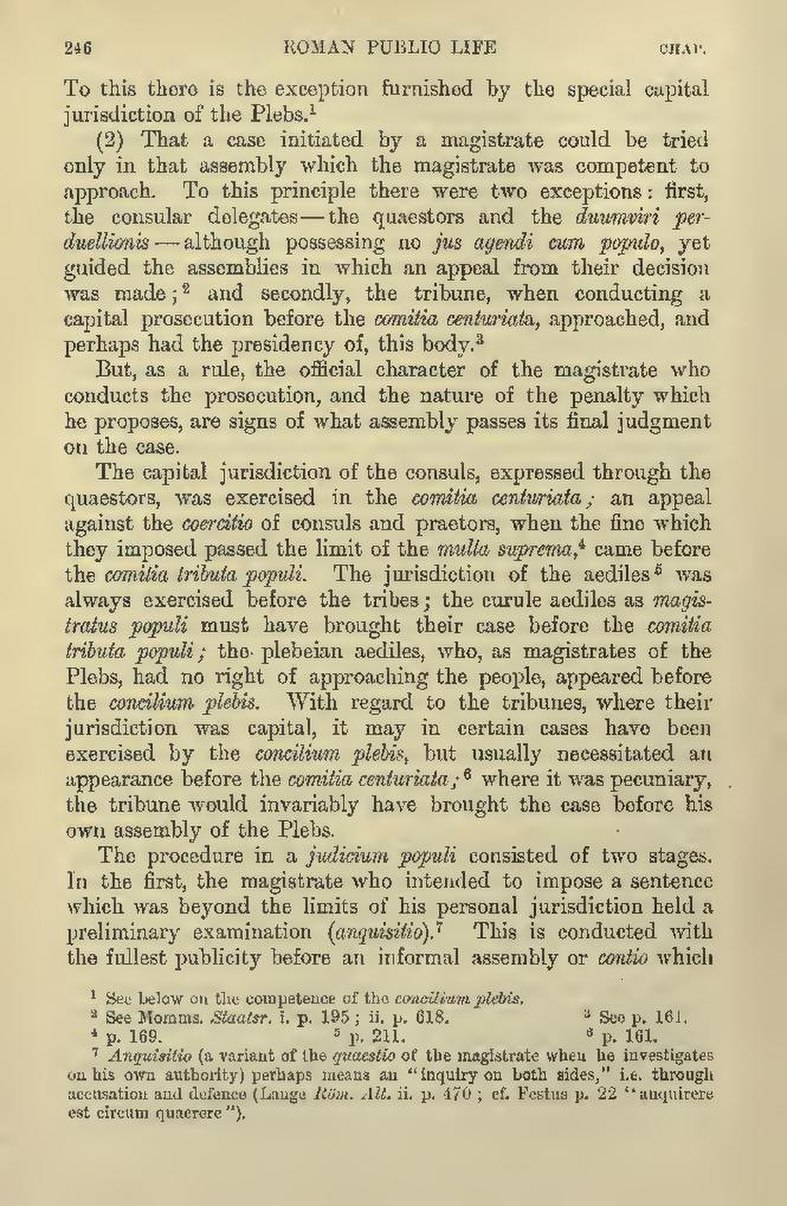To this there is the exception furnished by the special capital jurisdiction of the Plebs.[1]
(2) That a case initiated by a magistrate could be tried only in that assembly which the magistrate was competent to approach. To this principle there were two exceptions: first, the consular delegates—the quaestors and the duumviri perduellionis—although possessing no jus agendi cum populo, yet guided the assemblies in which an appeal from their decision was made;[2] and secondly, the tribune, when conducting a capital prosecution before the comitia centuriata, approached, and perhaps had the presidency of, this body.[3]
But, as a rule, the official character of the magistrate who conducts the prosecution, and the nature of the penalty which he proposes, are signs of what assembly passes its final judgment on the case.
The capital jurisdiction of the consuls, expressed through the quaestors, was exercised in the comitia centuriata; an appeal against the coercitio of consuls and praetors, when the fine which they imposed passed the limit of the multa suprema[4] came before the comitia tributa populi. The jurisdiction of the aediles[5] was always exercised before the tribes; the curule aediles as magistratus populi must have brought their case before the comitia tributa populi; the plebeian aediles, who, as magistrates of the Plebs, had no right of approaching the people, appeared before the concilium plebis. With regard to the tribunes, where their jurisdiction was capital, it may in certain cases have been exercised by the concilium plebis, but usually necessitated an appearance before the comitia centuriata,[6] where it was pecuniary, the tribune would invariably have brought the case before his own assembly of the Plebs.
The procedure in a judicium populi consisted of two stages. In the first, the magistrate who intended to impose a sentence which was beyond the limits of his personal jurisdiction held a preliminary examination (anquisitio).[7] This is conducted with the fullest publicity before an informal assembly or contio which
- ↑ See below on the competence of the concilium plebis.
- ↑ See Momms. Staatsr. i. p. 195; ii. p. 618.
- ↑ See p. 161.
- ↑ p. 169.
- ↑ p. 211.
- ↑ p. 161.
- ↑ Anquisitio (a variant of the quaestio of the magistrate when he investigates on his own authority) perhaps means an "inquiry on both sides," i.e. through accusation and defence (Lange Röm. Alt. ii. p. 470; cf. Festus p. 22 "anquirere est circum quaerere").
